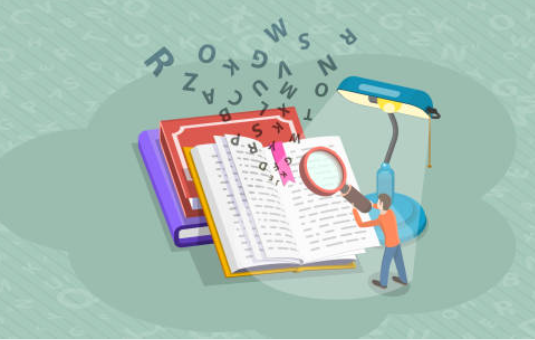How to Use Optimistic Words in your Writing
Using optimistic words in your writing can help you convey a positive message. You can also try reframing negative language to convey a more positive message.

Selfpause Affirmation App
Download the app to get 1,000’s of affirmation meditations and everything you need to write, record and listen to your own.
Optimistic

Using optimistic words and phrases to encourage people is a simple yet effective way to improve their mood. It’s a great way to break the gloom and depression cycle, and it can build stronger relationships. In addition, it can change people’s perceptions. By using words such as “I am happy and excited to be here,” you can help people see the good in situations.
Optimists don’t take setbacks personally. They attribute problems to specific situations and circumstances, instead of to their own capabilities. They bounce back from disappointments quicker than pessimists. A pessimistic outlook is more likely to lead to failure than success. Optimists are also more likely to be prepared to handle challenges than pessimists.
Optimism is an important trait for a healthy lifestyle. Studies have shown that optimism enhances cognitive abilities and affects physical wellbeing. It can also lead to greater flexibility and problem-solving capacity. It can be a protective factor against depression and AIDS. Optimism is an important trait to maintain, as it can help you avoid or manage negative situations.
People who are optimistic tend to believe that the best things can happen. They hope for the best possible outcome, even when it is unlikely. People who are overconfident are also called overly optimistic. It’s important to remember that the best possible outcome isn’t necessarily the most likely one, and that you should be careful with how optimistic you are.
Sanguine

Sanguine is a ruddy-red word with an optimistic meaning. The word derives from the Latin sanguineus, meaning blood. It means “hopeful, vivacious, and confident.” In English, sanguine means “happy”. It’s a good word for those who are confident in themselves and their future.
Sanguine is an optimistic word, but it doesn’t necessarily mean that something will happen. Typically, this word is used to describe a person. However, it can also be used to describe a certain tone or mood, an attitude, or a specific period of time. When used to describe someone, it is important to know what the word means.
Originally, sanguine meant “bloody.” Today, it means “hopeful,” “confident,” and “cheerful.” The term dates back to medieval times, when medieval theories linked the rosiness of one’s cheeks to one’s blood. Sanguine also has adjectival forms, sanguinely and sanguineness. However, these forms are not often used. The adjective sanguinary, meaning “bloody,” is also used for sanguine people.
Silly
Traditionally, the word nice has had connotations of good taste, culture, respect, and agreeability. These connotations are still present today, which makes nice a term of approval. The word silly has a different history. Its roots lie in Old English, where silly originally meant blessed or happy. Later, it became a synonym for innocent, weak, or harmless.
Hopeful

There are many websites on the Internet that allow you to find synonyms for words. However, there are very few that allow you to find words that are related to hopeful. There are many words that are related to hopeful in other ways. In some cases, a word could even have the opposite meaning. In such a case, you can find its opposite meaning in a word list.
The word hopeful means that you’re confident that something will happen. It can also refer to someone who is trying hard to succeed. As an example, a young politician may be optimistic that he will win the next election. It’s also a common adjective used to describe someone who is promising. A charismatic politician might be hopeful that he will win the next election.
The Official Languages of India dictionary offers a list of hopeful synonyms. It also contains an antonym list. If a word has more than one meaning, you’ll find several similar synonyms in Urdu. This way, you can find words that are similar to hopeful and find the meaning you’re looking for.
Our Top FAQ's
Using optimistic words in writing can positively impact readers or listeners by helping to create a more positive and hopeful tone. This can be particularly effective in situations where you want to inspire or motivate your audience, or where you want to convey a sense of optimism or positivity about a particular topic or situation.
Some examples of optimistic words that can be used in writing include “hope,” “opportunity,” “success,” “advancement,” “prosperity,” and “achievement.”
To effectively incorporate optimistic words into your writing without coming across as insincere or excessively positive, it can be helpful to use them in moderation and to be sincere in your use of them. You can also try to provide concrete examples or evidence to support your use of optimistic language, which can help to make it feel more authentic and genuine.
It can be particularly important to use optimistic language in writing or communication that is meant to inspire or motivate, such as personal development materials, leadership communications, or marketing materials. Optimistic language can also be useful in writing that is meant to convey a sense of hope or positivity, such as in news articles or social media posts.
To balance the use of optimistic language with realism or honesty in your writing, it can be helpful to be mindful of the context and purpose of your writing. In some cases, it may be appropriate to use optimistic language to convey a sense of hope or positivity, while in other cases it may be more appropriate to be more realistic or straightforward. It can also be helpful to consider the audience for your writing and to tailor your language accordingly.
